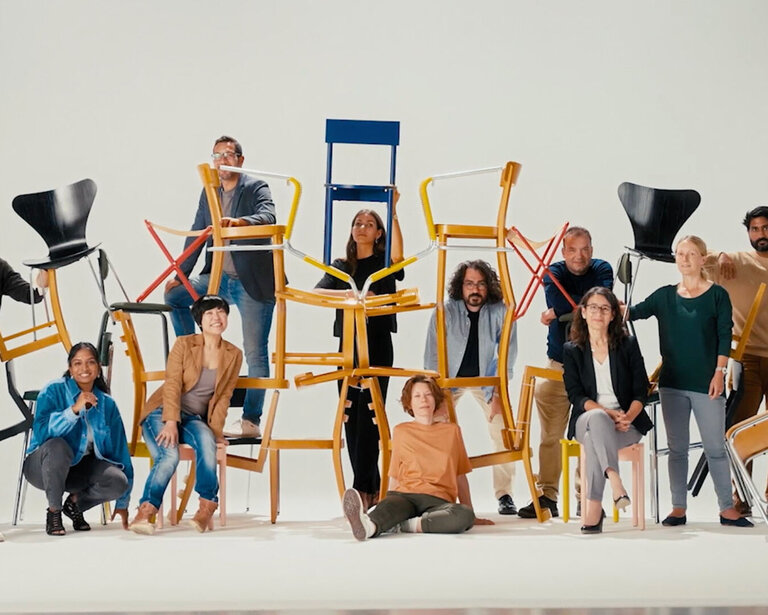
Studying, teaching, continuing education
Many different parties are joining forces to advance teaching at UZH. The Future of Teaching initiative promotes innovative cooperation projects and establishes guideposts for future development.
Teaching at UZH comes in a wide variety of guises and is in a constant state of flux. Digital technology, artificial intelligence and a rapidly changing social environment are opening up new possibilities for universities but also confront them with great challenges.
Dynamic networks
Having skilled and dedicated instructors is a fundamental requirement for high-quality university education. Instructors create positive learning experiences and improve students’ prospects for the future. However, university teaching is more than the sum of people’s individual contributions. It is the result of processes based on the division of labor. Teaching quality depends on complex requirements with regard to subject matter expertise, methodology, organization, facilities and technology. This is why the university promotes working together in order to advance teaching. Collaborative networks offer expert guidance and moral support to everyone involved in teaching. They raise instructors’ awareness of their role and also the quality of instruction. They generate ideas and inspiration as well. Working together in teams that often include students accelerates the development and implementation of future-oriented course offerings.
Inter-university exchange
UZH sees itself as a “learning” institution – and this also applies to teaching. Sharing experiences and working together to develop new teaching methods takes place not only within the university but also between institutions, for instance on a cantonal level as part of the Digitalization Initiative of the Zurich Higher Education Institutions, or internationally within the Una Europa network. The UZH School for Transdisciplinary Studies, the only institution of its kind in Switzerland, acts as a hub for interdisciplinary teaching.
Five action areas
University education is part of social and technological change processes and also shapes these processes actively, openly and responsibly. UZH reaffirmed this stance in its digital strategy, which was approved in 2023, and also in its principles for dealing with generative artificial intelligence, likewise issued in 2023. The development of teaching at the university is proceeding according to the five action areas that were defined as part of the Future of Teaching initiative in 2022: Developing Teaching Together, Flexible Lifelong Learning, Expanding Horizons, Improving Digital Services and Campus of the Future.
Six quality criteria for the UZH curriculum have been formulated as part of the Future of Teaching initiative. These criteria point the way for the development of teaching at the university. Namely, good teaching at UZH is research-based, goal-oriented, engaging, individualized, transdisciplinary and international.
The UZH Teaching Fund (ULF) offers incentives for teaching teams to develop, test and implement specific ideas for novel teaching formats. Two million francs are earmarked for this every year. The range of formats already introduced or currently in development thanks to the five funding schemes include practical didactic toolkits, internal training courses, interdisciplinary modules and even entire programs of study. These projects make themselves felt throughout the university and set standards for overall development.
To promote the exchange of professional expertise among teaching staff, UZH puts on various events such as Teaching Day and Teaching Inspiration Week as well as workshops and online platforms. The Network of Study Program Coordinators, founded in 2023, serves to strengthen the quality of curriculum development.
Flexible educational programs offer individuals the freedom to design their own career paths and adapt to changes in the working world. UZH sees itself as a pioneer in lifelong learning and offers a well-rounded range of continuing education courses. In the future, we aim to make our continuing education course offerings even more flexible. Microcredentials should open up new possibilities to acquire additional qualifications via the completion of small learning modules. Together with partner universities in the Una Europa network, UZH is currently exploring standards for certificates that would ensure the quality, transparency, comparability, recognition and transferability of credentials and credits.
UZH uses its international networks with strategic partner universities to strengthen its position in the European university community and set itself apart with an innovative and attractive curriculum. Since 2022, UZH has been working closely with its partner universities from the Una Europa network in order to share teaching resources and develop novel courses and virtual course offerings. Significant progress has been made in the establishment of joint international Bachelor’s degree programs in European Studies and Sustainability. The Una Europa alliance also promotes international cooperation among teaching staff.
The UZH digital strategy, launched in 2023, points the way forward for the development of digital services in teaching. The aim is to increase flexibility, efficiency and user-friendliness. This should enable students to acquire all the information or services they need for their studies via a central digital access point.
The digital strategy also formulates the university’s basic stance on the use of digital technologies in teaching: UZH facilitates students’ ability to experience and engage with the various aspects of digital transformation and learn how to shape them. Both students and teaching staff will be empowered to use and acquire skills in new technologies such as generative AI while weighing the opportunities and risks that they present.
The spatial requirements of the campus are changing in tandem with the evolution of teaching. For this reason, UZH is taking a step-by-step approach to updating its campus. Flexible multifunctional rooms for mixed didactic settings will become more important than the traditional university lecture hall. These multifunctional rooms should allow for more teamwork and discussion and for the increased integration of teaching and research. During the planning process for the future teaching and research center FORUM UZH, students and teaching staff defined standards for how classrooms should be designed, which also serves as a blueprint for other construction projects.